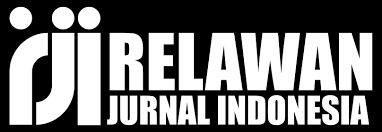Dinamika Kepemimpinan Modern
DOI:
https://doi.org/10.61722/jiem.v2i5.1255Keywords:
leader; leadership; modernAbstract
In the dynamic era of current business and organizations, leadership role has become the key to achieving success and sustainability. The author analyzes the main characteristics of transformational leadership and how this approach can be applied to effectively achieve organizational goals through literature review. The conceptual analysis results identify the positive impact of transformational leadership on organizational culture, employee motivation, and significant achievement of results.
References
Adha, L. A. (2020). Digitalisasi Industri Dan Pengaruhnya Terhadap Ketenagakerjaan Dan Hubungan Kerja Di Indonesia. Journal Kompilasi Hukum, 5(2), 267–298. https://doi.org/10.29303/jkh.v5i2.49
Avriyanti, S., & Sumarni, I. (2019). Through Motivation on Performance of Employees. Jurnal Ilmu Administrasi Publik & Bisnis Vol., 3(2), 196–212.
Lumban Gaol, N. T. (2020). Teori Kepemimpinan: Kajian dari Genetika sampai Skill. Benefit: Jurnal Manajemen Dan Bisnis, 5(2), 158–173. https://doi.org/10.23917/benefit.v5i2.11810
Mulyono, H. (2018). Kepemimpinan (Leadership) Berbasis Karakter Dalam Peningkatan Kualitas Pengelolaan Perguruan Tinggi. Jurnal Penelitian Pendidikan Sosial Humaniora, 3(1), 290–297. https://doi.org/10.32696/jp2sh.v3i1.93
Nugroho, D., Purnomo, M., Hermanto, B., & Maulina, E. (2019). Social Entrepreneurship Intention: a Systematic Literature Review. Russian Journal of Agricultural and Socio-Economic Sciences, 88(4), 86–94. https://doi.org/10.18551/rjoas.2019-04.12
Prayoga, A. (2014). Studi literatur tentang teori keadilan (Adam’s equity theory), teori motivasi kontemporer oleh John Stacy Adam. Journal of Abnormal and Social Psychology, February, 422–436. https://doi.org/10.13140/RG.2.2.15901.05609
Tumangkeng, G. A. (2013). Intisari Teori Kepemimpinan. In Jurnal EMBA (Vol. 1, Issue 4). www.ptipu.blogspot.com
Waedoloh, H., Purwanta, H., & Ediyono, S. (2022). Gaya Kepemimpinan dan Karekteristik Pemimpin yang Efektif. Social, Humanities, and Educational Studies (SHEs): Conference Series, 5(1), 144. https://doi.org/10.20961/shes.v5i1.57783
Widarto. (2013). Kepemimpinan ( Leadership ). Universitas Negeri Yogyakarta, 1–11.
Yudiaatmaja, F. (2013). Issn 1412 – 8683 29. Procedia - Social and Behavioral Sciences, IV(2), 29–38. http://dx.doi.org/10.1016/j.intman.2016.11.002%0Ahttps://doi.org/10.1016/j.tele.2017.10.007%0Ahttp://ilp.ut.ac.id/index.php/JOM/article/view/432%0Ahttp://dx.doi.org/10.3926/jiem.1530%0Ahttp://dx.doi.org/10.1016/j.bushor.2017.11.007%0Ahttps://doi.org/10.10
Zaini, P. M., Zaini, P. M., Saputra, N., Penerbit, Y., Zaini, M., Lawang, K. A., & Susilo, A. (2023). Metodologi Penelitian Kualitatif (Issue May).
Downloads
Published
Issue
Section
License
Copyright (c) 2024 JURNAL ILMIAH EKONOMI DAN MANAJEMEN

This work is licensed under a Creative Commons Attribution-ShareAlike 4.0 International License.












